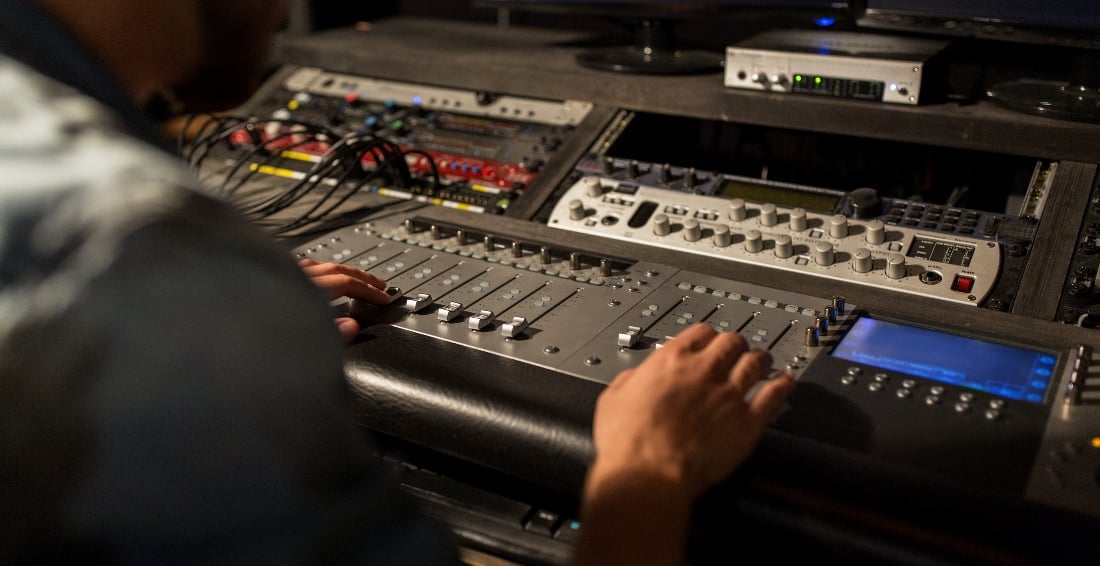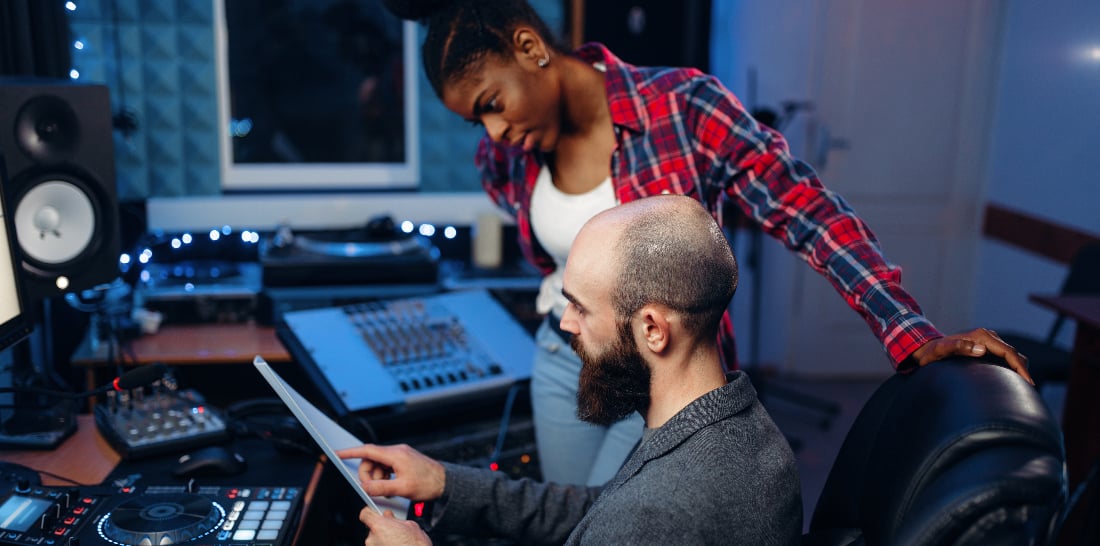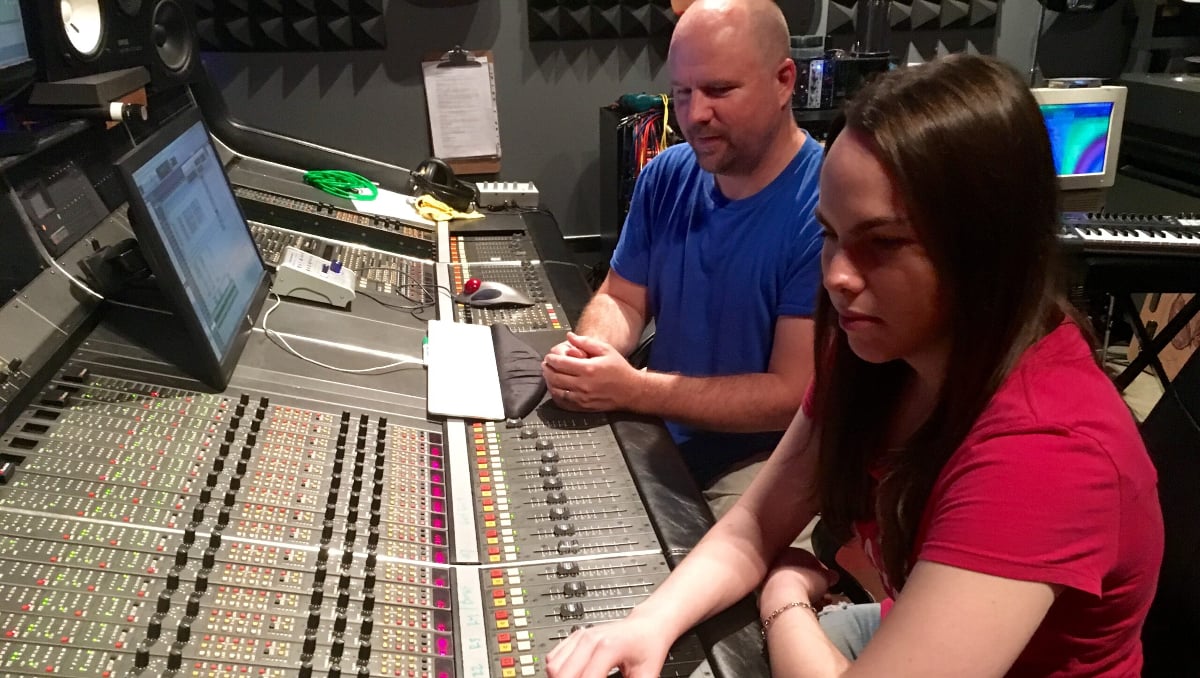What is a mastering engineer
A mastering engineer is a highly specialized music professional responsible for the final step in the production process before a recording is distributed to the public. You may have other jobs as well–audio engineer or music producer–but in this role, you’ll take mostly completed work and get them ready for different forms of media, such as radio, streaming, CDs, and others.
Your primary role is to enhance and optimize the audio quality of a recording for all kinds of systems, from high-end studio monitors to consumer headphones and speakers. You’ll address problems like clicks, pops, noise, or imbalances between instruments or vocals to create a polished final product.
You’ll also work to produce a consistent sound across all tracks of an album or project, whether it’s adjusting the overall tonal balance, dynamics, or volume levels to create a cohesive listening experience. This is especially important when tracks are recorded at different times or places.
A mastering engineer’s goal is to provide a polished, consistent, and optimized audio product that meets industry standards and sounds its best across various playback devices. You play a crucial role in ensuring that music and audio content reach the audience in the best possible form.


What does a mastering engineer do
A mastering engineer’s daily tasks can vary depending on their workload and the specific projects they’re working on. Your daily routine involves a blend of technical work, critical listening, communication with clients, and attention to detail to ensure that audio recordings sound their best and are ready for distribution to the public.
While the work is largely technical, you’ll want to collaborate with your clients before the mastering process begins to get a solid understanding of what they want or need. With that information, you’ll analyze the audio files you get from the audio engineer or producer and identify any potential issues or anomalies that need addressing (clicks, pops, or imbalances).
During a mastering session, you’ll use specialized audio processing equipment and software to adjust the audio tracks for optimal sound quality. This includes tasks like EQ adjustments, dynamic range compression, limiting, and noise reduction. You must maintain a sharp ear for quality control and continuously listen to the audio to ensure it meets industry standards.
You’ll keep track of different versions, formats, and revisions to ensure accuracy and prevent any mix-ups or loss of data and prepare audio files for different formats, such as CD, vinyl, or digital streaming. This involves format-specific adjustments and file conversion. You’ll collaborate with other professionals, such as record producers, mixing engineers, and artists, to achieve the desired sound and artistic vision for a project.
How do you become a mastering engineer
Becoming a mastering engineer requires dedication, technical expertise, and a keen ear for audio quality. In many cases, mastering engineers likely started in a different position at the studio and worked their way into the job. A lot of what you’ll be doing can be learned early in your career, but experience is what makes a successful mastering engineer.
Begin by building a solid understanding of audio fundamentals: the physics of sound, signal flow, and digital audio technology. Familiarize yourself with the tools of the trade, buying studio monitors, headphones, audio interfaces, and specialized mastering software. Start with free or demo versions of the software and less expensive gear until you’re ready for the high-end stuff.
You can also seek mentorship with experienced mastering engineers or studios. Learning from seasoned professionals can provide invaluable insights into the craft and industry best practices. Listen to and analyze the work of renowned mastering engineers. Understand their techniques and the sonic characteristics they achieve.
Mastering is an art that improves with experience, so get practical experience on a wide range of audio material, from different genres and recording sources. Experiment with various processing techniques to refine your skills and, once you’ve honed your skills, consider offering mastering services to independent musicians, bands, or small labels. Building a client base may take time, but word-of-mouth referrals can lead to steady work.








